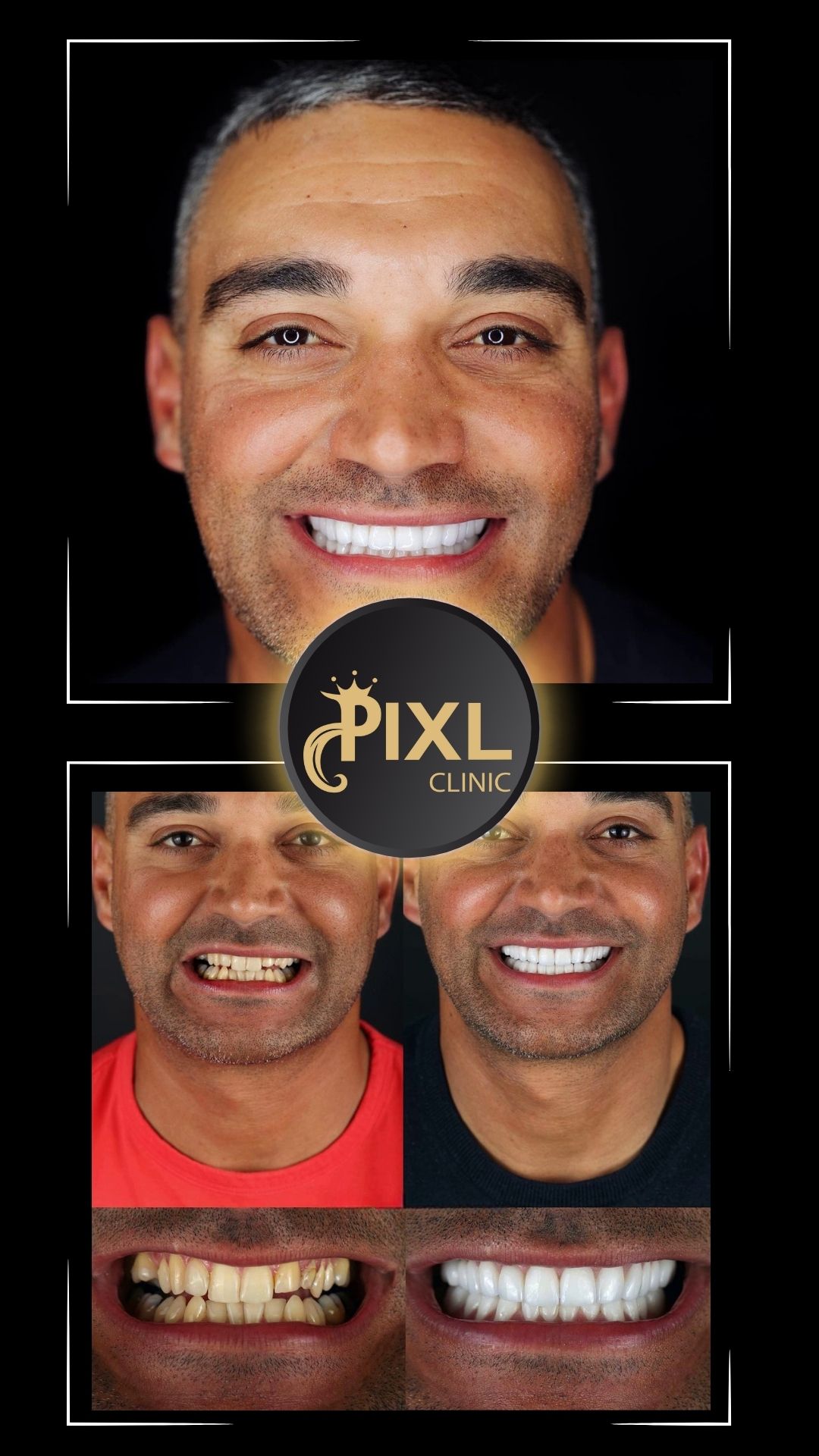Can Dental Implants Be Removed Safely? Expert Insights
Dental implants have revolutionized modern dentistry, providing a durable and aesthetically pleasing solution for missing teeth. They are designed to be a permanent fixture in your mouth, functioning just like natural teeth. However, situations may arise where a dental implant needs to be removed. This could be due to complications, poor placement, or a patient’s decision to pursue alternative treatments.
Understanding Dental Implants
A dental implant consists of three primary components:
- The Implant Post: A titanium or zirconia screw embedded into the jawbone.
- The Abutment: A connector that attaches the crown to the implant post.
- The Crown: The visible tooth-like structure made of porcelain or ceramic.
The implant integrates with the jawbone in a process called osseointegration, which ensures stability and functionality. While this integration is key to the implant’s success, it can also make removal more complex.

Why Might a Dental Implant Need to Be Removed?
- Implant Failure: This can happen due to several factors:
- Peri-implantitis: A type of gum disease causing inflammation and bone loss around the implant.
- Poor Osseointegration: The implant fails to fuse properly with the jawbone.
- Infection: Bacterial infections can compromise the surrounding tissues and bone.
- Mechanical Issues: Cracks or fractures in the implant structure.
- Placement Errors: Improper positioning of the implant can affect its stability and aesthetics, requiring revision.
- Allergic Reaction: Though rare, some individuals may experience an allergic reaction to the metal (e.g., titanium) used in the implant.
- Bone Loss: Significant bone loss around the implant can lead to instability.
- Aesthetic Concerns: Some patients may opt for removal if they are unhappy with the appearance or positioning of the implant.
- Patient Health Changes: Conditions like osteoporosis or severe jawbone deterioration may make the implant less viable over time.
Can Dental Implants Be Removed?
Yes, dental implants can be removed safely by a skilled dental professional. The complexity and risks depend on several factors, such as the implant’s size, location, and how long it has been in place.
Key Factors Affecting Safety:
- Time Since Placement: Recent implants are easier to remove since osseointegration may not be complete. Fully integrated implants may require specialized techniques.
- Bone Health: The quality and density of the surrounding bone play a role in the ease of removal.
- Surrounding Structures: Implants near nerves, sinuses, or other critical structures demand extra caution.
Techniques for Safe Removal
Dental implant removal is performed using advanced tools and techniques to minimize damage to the surrounding bone and tissues. Common methods include:
- Trephine Drills: A cylindrical drill designed to extract the implant without harming surrounding bone.
- Reverse Torque Removal: Applying controlled force to loosen the implant.
- Piezoelectric Devices: Ultrasonic tools that gently remove bone around the implant for safe extraction.
What to Expect During and After Removal
The Procedure
- Consultation: A comprehensive examination using X-rays or CT scans determines the best approach for removal.
- Local Anesthesia: The area around the implant is numbed to ensure a painless experience.
- Extraction: The dentist or oral surgeon uses the appropriate tools to safely remove the implant.
Post-Removal Recovery
- Pain Management: Over-the-counter pain relievers and anti-inflammatory medications can help manage discomfort.
- Healing Period: The healing process typically takes a few weeks to a few months, depending on the individual’s health and the extent of the procedure.
- Bone Grafting: In cases of bone loss, grafting may be needed to restore the jawbone before considering a new implant or alternative treatment.
Alternative Options After Removal
- Replacement Implant: After the site heals, a new implant may be placed with improved techniques or materials.
- Dental Bridges: A non-surgical option for replacing missing teeth.
- Removable Dentures: Cost-effective and less invasive than implants.
- Zygomatic Implants: For patients with significant bone loss, these implants anchor into the cheekbone instead of the jawbone.
Preventing the Need for Implant Removal
- Choose a Qualified Professional: Proper planning and placement by an experienced dentist or oral surgeon minimize risks.
- Maintain Oral Hygiene: Regular brushing, flossing, and professional cleanings help prevent peri-implantitis.
- Routine Checkups: Regular dental visits ensure any potential issues are caught early.
- Healthy Lifestyle: Avoid smoking and follow a balanced diet to support oral and bone health.
Expert Insights: Final Thoughts
While dental implants are designed to be permanent, complications can arise, necessitating their removal. The good news is that with advances in dental technology and skilled professionals, removal is a safe and effective process when needed. If you’re facing issues with a dental implant, consult a dental specialist to discuss your options and develop a tailored treatment plan. Whether it’s replacement or alternative solutions, modern dentistry offers various ways to restore your smile and confidence.
Remember, proper care and timely intervention are key to maintaining the health and longevity of your dental implants.
FAQ: Dental Implant Removal
Can dental implants be removed safely?
Yes, dental implants can be removed safely by a qualified dental professional. The procedure requires precision and specialized tools to minimize damage to the surrounding bone and tissues.
Why would a dental implant need to be removed?
Common reasons include:
- Peri-implantitis (infection and inflammation around the implant)
- Implant failure due to poor osseointegration
- Placement errors
- Allergic reactions to the implant material
- Bone loss or structural issues
- Aesthetic concerns
Is dental implant removal painful?
The procedure is performed under local anesthesia or sedation, so you won’t feel pain during the removal. Mild discomfort or soreness may occur during recovery, which can be managed with pain relievers and proper aftercare.
How long does the removal process take?
The duration varies depending on the complexity of the case. Simple removals may take 30 minutes to an hour, while more complex cases involving fully integrated implants could take longer.
What happens to the bone after an implant is removed?
Bone loss may occur, especially if the implant was removed due to infection or bone degradation. Bone grafting may be recommended to restore the affected area before considering further treatment.
Can a new implant be placed after removal?
Yes, in most cases, a new implant can be placed once the site has healed and bone health is restored. The timing depends on the cause of removal and the patient’s overall oral health.
What are the risks of removing a dental implant?
Potential risks include:
- Bone loss at the implant site
- Damage to surrounding nerves or tissues
- Prolonged healing time
- Infection (if the site is not properly cared for post-removal)
What are my options if I don’t want another implant?
Alternatives to implants include:
- Dental bridges
- Partial or full dentures
- Bone-supported prosthetics like zygomatic implants (for severe bone loss)
How much does dental implant removal cost?
The cost depends on the complexity of the procedure and any additional treatments required, such as bone grafting. Consultation with a dental professional is needed for an accurate estimate.
How can I avoid complications that lead to implant removal?
To prevent implant issues:
- Maintain excellent oral hygiene.
- Visit your dentist regularly for checkups.
- Avoid smoking, as it can hinder healing and increase the risk of infection.
- Choose an experienced dental professional for implant placement.
Are there any long-term effects of implant removal?
With proper care, most patients experience no long-term issues after removal. Bone grafting or other restorative procedures can ensure the site remains healthy for future treatments.
Can a removed implant be reused?
No, once an implant is removed, it cannot be reused due to structural integrity and sterility concerns. If replacement is needed, a new implant will be custom-made.
































